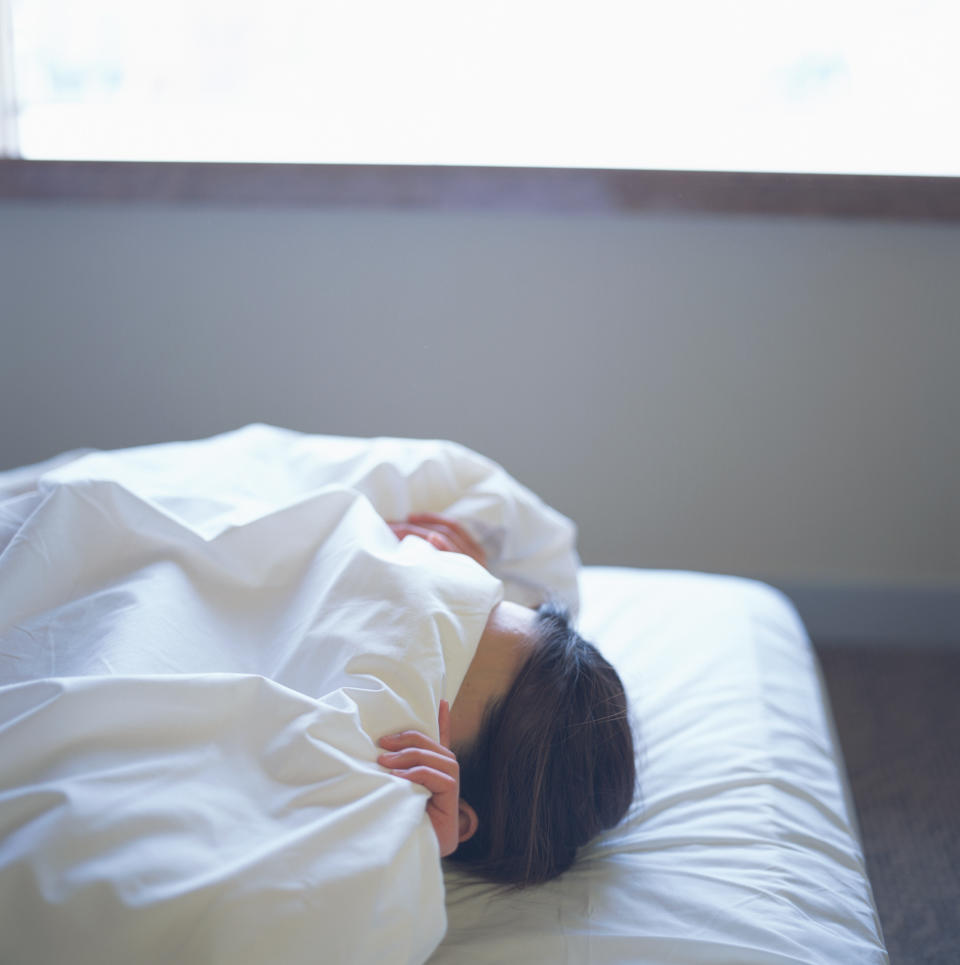Too much sleep may be putting your health at risk

When it comes to sleep, many people are not getting enough, often muscling through the day fuelled by multiple cups of coffee.
According to the Centers for Disease Control and Prevention, one out of every three people are sleep deprived on a regular basis.
That’s important since consistently not getting the sleep your body needs is associated with several health problems, including a higher risk of diabetes, heart disease, high blood pressure, obesity, and stroke.
But is getting too much sleep also bad for your health? Possibly.
Too much of a good thing
A new study on more than 5,200 people between 45 and 75 years old, which was published in The Journal of the Alzheimer's Association, found a link between sleeping for long periods of time (along with chronic insomnia symptoms) and declines in memory, executive function and processing speed — all signs that can come before people develop mild cognitive impairment and Alzheimer's disease, according to a statement by the study’s lead author, Alberto R. Ramos, MD, an associate professor of neurology specializing in sleep medicine at the University of Miami Miller School.
Hispanic subjects were chosen for the study because, according to Ramos, they “have a significantly higher risk of Alzheimer's disease compared with non-Hispanic whites."
Sleeping too much is associated with several other health issues, including type 2 diabetes and heart disease, according to Johns Hopkins Medicine.
But, like the famous chicken-or-the-egg conundrum, which comes first — sleeping too much or the health problem?
“The study is associating Alzheimer’s with oversleeping, which does not mean one is causing the other,” Aneesa Das, MD, sleep medicine physician at The Ohio State University Wexner Medical Center (who is not associated with the study), tells Yahoo Lifestyle. “Association does not mean causation.”
Chicken-or-the-egg conundrum
It’s more likely that chronic health conditions can lead to oversleeping than the other way around, says Das. Rafael Pelayo, MD, a sleep specialist at the Stanford Sleep Medicine Center, agrees, telling Yahoo Lifestyle: “If someone is sleeping more than before, especially if they’re often tired, you have to wonder about some underlying medical problems.”

Das notes that excessive sleepiness is often due to a mood disorder, such as depression. “If you’re sleeping all day, you have to look at your mental health,” she says.
“That would be my first concern for people. Number two, people could be oversleeping because of endocrine disorders, such as hypothyroidism.”
Along with certain medications (including over-the-counter ones) that can cause sleepiness, Das notes that obstructive sleep apnea — a common condition where breathing is briefly and repeatedly interrupted while sleeping — decreases sleep quality, making people more tired, which can lead to oversleeping.
There are also sleep disorders, such as idiopathic hypersomnia (a rare disorder that makes people excessively sleepy) and narcolepsy (which causes “overwhelming” daytime drowsiness and sudden “attacks of sleep,” according to the Mayo Clinic) — both of which can cause a person to sleep more than usual.
So what’s the right amount of sleep you should be aiming for?
For “optimal health and wellbeing,” the American Academy of Sleep Medicine and the Sleep Research Society recommend that adults ages 18-60 get at least seven hours each night.
Most experts, including Das, say a healthy range is between seven to nine hours per night (although she points out that there are outliers, such as long sleepers who need 10 or more hours per night, as well as short sleepers who are fine on six hours a night).
But Pelayo points out that it’s not just about logging a certain amount of sleep between the sheets — quality is also key. “It’s whether you feel refreshed or not,” he says.
“You shouldn’t be waking up tired.”
Words by Rachel Grumman Bender.

 Yahoo Lifestyle
Yahoo Lifestyle 

